
For aspiring nurses in Worcester, Massachusetts, it is critical to understand the available career paths and the key attributes of the city’s top nursing programs.
Comprising one of the largest segments in the U.S. workforce, nurses play an indispensable role in the healthcare industry. Education and training vary for different nursing roles to accommodate their diverse responsibilities. Jobs common to all nursing staff include direct patient care, drug and therapy administration, and the handling of basic health problems. Advanced nurses may also participate in policy making, supervision, and administration.
Aspiring registered nurses typically require a full two years of study to complete an associate degree (ADN) or four years to complete a bachelor’s degree (BSN). Students receive training in nursing theory, healthcare informatics, psychology, and case management. Registered nurses often perform healthcare tasks with a fair degree of autonomy while working in close association with physicians.
As the largest healthcare profession, nursing should experience continued strong demand according to the Bureau of Labor Statistics. Employment will grow by about 20% over the next decade. Over 13,000 nurses are employed in Worcester, with the average salary in each nursing profession about $3,000 higher than the state average. Tenet Healthcare is one of the most prominent local employers.
University of Massachusetts Medical School, Worcester State University, and Fitchburg State University offer some of the most acclaimed nursing programs in the state of Massachusetts. Nurses in training may find internship opportunities in some of the city’s top hospitals, including UMass Memorial Medical Center, AdCare Hospital, and Fairlawn Rehabilitation Hospital.
2024 NURSING SCHOOL RANKINGS
For our 2024 rankings, the research team at Nursing Schools Almanac collected data on nearly 3,000 nursing schools and campuses throughout the United States. We evaluated each school on three dimensions:
- The institution’s academic prestige and perceived value
- The breadth and depth of nursing programs offered
- Student success, particularly on the NCLEX licensure examination
We then combined these assessments into an overall score and ranked the schools accordingly. For a detailed description of our assessment methodology and dimension weights, please see here.
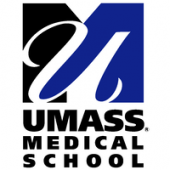
#1: University of Massachusetts Medical School
UMass Medical School is consistently ranked by U.S. News & World Report as one of the leading medical schools in the nation for primary care education. UMMS’s graduate school of nursing, accredited by the Commission on Collegiate Nursing Education, offers master’s degrees, post-master’s certificates, and doctoral degrees. It stands out as the only publicly funded nursing school in the commonwealth with a sole focus on graduate education. It is no surprise, then, that their direct entry MSN program has boasted an exceptional NCLEX pass rate of 94% over the past decade.
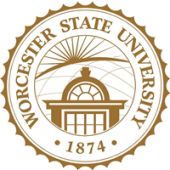
#2: Worcester State University
The Dr. Lillian R. Goodman Nursing Department at Worcester State University has educated nurses for forty years. The department provides three undergraduate nursing tracks: traditional BSN, RN-to-BSN, and LPN-to-BSN. Prelicensure BSN students have passed the NCLEX exam at a phenomenal 96% rate over the past decade, including a perfect 100% pass rate in three of the past five years. Worcester State’s MSN program is offered in two fields: community / public health nursing and nursing education. Designed for flexible scheduling, it offers blended learning between face-to-face classes and online study. The school also provides a post-master’s certificate program in nursing education.

#3: Fitchburg State University
As the first public university in Massachusetts to offer a nursing program, FSU has a long and distinguished history in nursing education. The school’s facilities include a well-equipped health assessment lab, a state-of the-art clinical simulation lab, and a home care lab. Over the past decade, an astonishing 95% of FSU’s prelicensure BSN students have passed the NCLEX exam on their first try. The university offers three BSN pathways: traditional, LPN-to-BSN, and RN-to-BSN. They also conduct an online MSN with a focus on forensic nursing, designed for RNs who wish to pursue advanced leadership positions in the healthcare system.
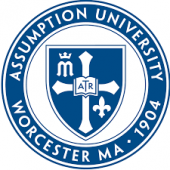
#4: Assumption University
The Froelich School of Nursing at Assumption University offers a direct-admission BSN program that prepares students to provide high-quality, patient-centered healthcare. The school’s direct-admission structure allows applicants to begin the nursing program the same year they are admitted. Students complete rigorous coursework on foundational and nursing topics. They also conduct clinical experiences in acute care and community-based environments. Assumption University is currently constructing a new nursing facility with a state-of-the-art clinical skills and simulation laboratory, intended to augment students’ acute care and community-based experiences. BSN graduates are prepared to sit for the NCLEX licensure examination.
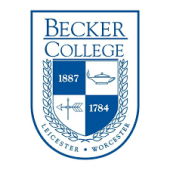
#5: Becker College
Becker College was founded in 1784 as Leicester Academy. It was the first nonsectarian academy in New England to accept female students. Today, Becker College is a private career-focused institution that serves more than 2,000 students across dozens of degree programs. The School of Nursing and Health Sciences offers two pathways to an ADN degree (traditional, LPN advanced placement) and two pathways to a BSN degree (prelicensure, RN-to-BSN). Graduates of the ADN program have consistently performed exceptionally well on the NCLEX-RN licensure exam, earning a 95% first-time pass rate over the past decade. The first five graduating classes of the traditional BSN program have also done well, averaging an 89% NCLEX pass rate.
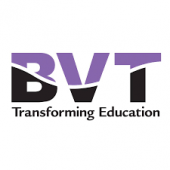
#6: Blackstone Valley Regional Vocational Technical High School
Blackstone Valley Regional Vocational Technical High School is a career-focused high school that prepares graduates for employment in the service, construction, and technology industries. BVT also has a nursing program for adults seeking careers in the healthcare industry. Accredited by the Accreditation Commission for Education in Nursing, the BVT practical nursing program requires 1,090 hours of coursework, laboratory exercises, and clinical experiences. The curriculum covers essential topics like caring for the elderly, community health, and new technologies. Upon completion of the program and passing the NCLEX-PN licensure examination, LPN graduates can pursue employment in acute care settings, long-term care facilities, home healthcare, and clinics. Over the past decade, Blackstone Valley Regional Vocational Technical High School’s LPN students have averaged an outstanding 96% first-time NCLEX pass rate.
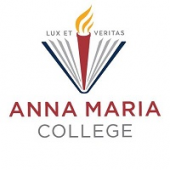
#7: Anna Maria College
The nursing program at Anna Maria College offers a four-year prelicensure BSN for entry-level students and an RN-to-BSN completion program for registered nurses. The prelicensure BSN program is 120 credit hours in length. Graduates have enjoyed an 85% pass rate on the NCLEX-RN licensure exam since the program’s inception. The RN-to-BSN pathway is designed for working nurses who already hold either an ADN or nursing diploma. The program’s flexible online curriculum is built on a foundation of holistic care with a powerful emphasis on multicultural and community nursing.
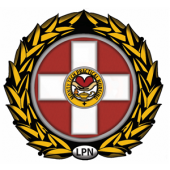
#8: Montachusett Regional Vocational Technical School
Montachusett Regional Vocational Technical School is the second-largest regional school district in Massachusetts, serving more than 1,400 students. Monty Tech’s LPN pathway is a unique program that allows students to skip the prerequisites. Designed for working adults, this ten-month evening program is fully approved by the Massachusetts Board of Registration in Nursing. Upon completion, students are encouraged to enroll in the LPN-to-BSN bridge program at Fitchburg State University. They are also well prepared for the NCLEX-PN licensure examination. Monty Tech’s LPN graduates have averaged an 89% first-time NCLEX pass rate over the past decade. Once they pass the exam, these newly licensed practical nurses are qualified for immediate employment in the field.
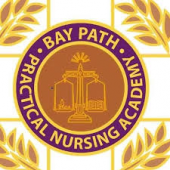
#9: Bay Path Regional Vocational Technical High School
Bay Path Regional Vocational Technical High School offers programs in more than twenty career areas that prepare high school students and adult learners for immediate entry into the workforce. The Bay Path Regional Vocational Practical Nursing Academy offers a 10-month fulltime (Monday through Friday) evening LPN program. The curriculum combines immersive classroom instruction and lab simulation experiences with hands-on clinical practice at local healthcare facilities. Coursework explores pharmacology, nutrition, medical-surgical nursing, family-centered care, and transition into practice. Graduates are well prepared to sit for the NCLEX-PN licensure examination. The Bay Path Regional Vocational Practical Nursing Academy has produced an average of 23 LPN graduates annually over the past decade, with an excellent 90% first-time NCLEX pass rate. These graduates can take advantage of LPN-to-BSN bridge programs offered at partner institutions like Fitchburg State University and Worcester State University.

#10: Quinsigamond Community College
Quinsigamond Community College offers LPN and ADN programs. Both programs feature clinical experiences at a number of sites within the Worcester County area. QCC’s nursing graduates are prepared for direct patient care in a variety of healthcare settings, including clinics, extended care facilities, home and community health agencies, and hospitals. The ADN program also prepares students for further study at four-year colleges and universities. QCC’s nursing students have consistently enjoyed a 100% job placement rate. They have also performed well on their licensure examinations. Over the past decade, LPN students have achieved an 89% first-time pass rate on the NCLEX-PN exam, while ADN students have achieved an 88% first-time pass rate on the NCLEX-RN exam.
